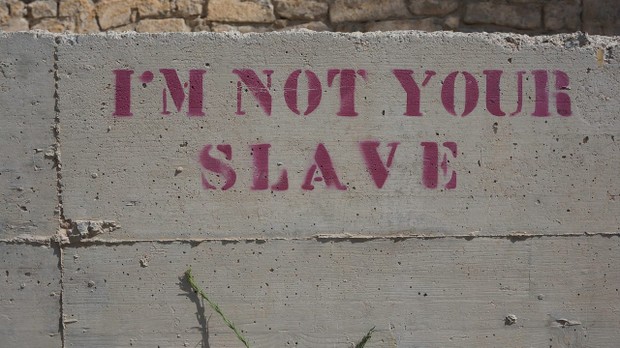
One of the base problems that I have with the socialistic bent the Democrat party has is the idea that they’re being good guys by giving things away for free. If your critical thinking skills go about as deep as the water level on a shower floor, then I could see why you would think that.
You think you’re helping people by giving them things they don’t have or couldn’t otherwise afford, and while that’s admirable, it loses all credibility when you appeal to a governmental power to accomplish the task. It ceases being a charity, and it just starts being robbery with some red tape and armed officials involved.
But there’s another underlying problem that isn’t considered a lot, and to highlight this I’m going to use a recent tweet by Rep. Ilhan Omar. As you can see, it’s a tweet using characters as a way to draw a picture depicting a person poking his head out from behind a brick wall and saying “housing is a human right.”
┻┳|
┳┻|
┻┳|
┳┻|
┻┳|
┳┻|
┻┳|
┳┻|
┻┳|
┳┻|
┻┳|
┳┻|
┻┳|
┳┻|
┻┳|
┳┻|
┻┳|
┳┻| _
┻┳| •.•) housing is a human right
┳┻|⊂ノ
┻┳|— Ilhan Omar (@IlhanMN) January 15, 2020
First off, it’s not. A human right is considered something that requires no labor to provide such as free speech, or the right to a fair trial and due process. It’s also a human right to practice your religion freely, but the left has shown great confusion about that over the years.
But housing is not a human right. It’s a commodity.
To say that housing is a human right means that people are entitled to the labor of others, and the only way to enforce that is through government intervention. That means that if a person owns a construction company and builds a series of homes, someone can just move in without paying for the service of the home being built. Should the construction company owner attempt to remove the occupants of the home he built by force, then armed authorities will show up and take the side of the person who just moved in without paying for services rendered.
What Omar is essentially promoting with her “housing is a human right” nonsense is free labor enforced by the state.
The shorter word for that is “slavery.”
Congratulations leftists, you just promoted the thing you’ve been holding over American’s heads for decades and decades.
In my opinion, I’m not sure we touch on this when “free stuff” is promised enough. Sen. Bernie Sanders, Sen. Elizabeth Warren, and more tout that should they obtain higher office, then they will rain free stuff from the sky. Free education, free medicare, and even free money. The problem is that none of this appears out of the blue. Someone has to provide it first.
The housing has to be built. The doctor has to provide medical care. The teacher has to teach. The business has to labor.
The natural reaction to this from many on the left is that the government will compensate, but the government is not an endless well of money, and that finite money that the government has comes from the very laborers you’re already putting into governmental chains in order to force them to provide you with services.
You’re killing the goose to get to the golden eggs.
This never seems to cross the mind of a socialist, an ideology that claims “fairness” as its highest calling.
What’s fair about slavery?
While I do believe that providing for the needy is important, it’s prudent that we push voluntary private charity over government-provided entitlements every time an issue comes up.
According to Dr. Mary Ruwart of The Advocates, she found that the government absorbs two-thirds of the “charitable” giving that comes its way, while private charity does the exact opposite:
“[Government] income redistribution agencies are estimated to absorb about two-thirds of each dollar budgeted to them in overhead costs, and in some cases as much as three-quarters of each dollar. Using government data, Robert L. Woodson (1989, p. 63) calculated that, on average, 70 cents of each dollar budgeted for government assistance goes not to the poor, but to the members of the welfare bureaucracy and others serving the poor. Michael Tanner (1996, p. 136 n. 18) cites regional studies supporting this 70/30 split.
“In contrast, administrative and other operating costs in private charities absorb, on average, only one-third or less of each dollar donated, leaving the other two-thirds (or more) to be delivered to recipients. Charity Navigator, www.charitynavigator.org the newest of several private sector organizations that rate charities by various criteria and supply that information to the public on their web sites, found that, as of 2004, 70 percent of charities they rated spent at least 75 percent of their budgets on the programs and services they exist to provide, and 90 percent spent at least 65 percent. The median administrative expense among all charities in their sample was only 10.3 percent.”
In short, private charities are going to beat public charities every time. The amount of red tape and money-hungry programs that exist in government will rob a charity blind before the money ever gets to the intended recipients. Meanwhile, a private charity exists for one reason and it fulfills that reason without all the bureaucracy.
Free people will find a way to make the world around them better, but slaves are chained to the will of a master who only thinks of making the world better for itself.














